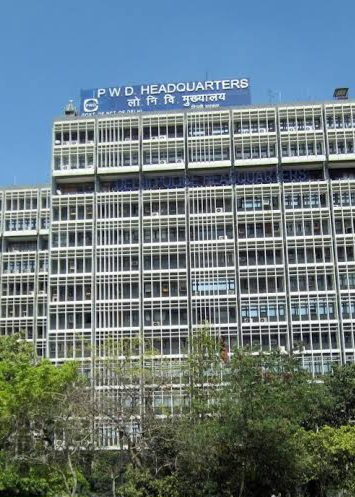

Bitcoin Bribe: A New Era of Corruption?
“5bitcoin’s Bribe ” Traditionally, bribes involved cash or tangible assets, but the rise of cryptocurrencies like Bitcoin offers a new, less traceable medium. According to sources close to the investigation, the PWD official allegedly demanded 5 Bitcoins—valued at approximately $300,000 at current market rates—to secure a lucrative infrastructure tender for a private contractor. This demand was reportedly made through encrypted communication channels, highlighting the role of technology in facilitating such transactions.
The use of Bitcoin in this context is particularly intriguing. Unlike traditional currency, Bitcoin operates on a decentralized blockchain, making transactions pseudonymous and difficult to trace without sophisticated tools. This raises concerns about whether digital currencies are becoming a tool for illicit activities. However, it also prompts curiosity: could blockchain’s transparency features be leveraged to combat corruption rather than enable it?
The Allegation: What We Know So Far
Details of the Bitcoin Bribe case remain limited as investigations are ongoing. Sources indicate that the contractor, seeking a multimillion-dollar road construction tender, was approached by the official with a demand for digital payment. The contractor reportedly alerted authorities, leading to a sting operation. While the official’s identity remains undisclosed to protect the investigation, the case has sparked widespread debate about the vulnerabilities of adopting emerging technologies in public administration.
The PWD, responsible for critical infrastructure projects, has long faced scrutiny over tender allocation processes. Allegations of favoritism and kickbacks are not new, but the use of Bitcoin introduces a modern twist. This incident underscores the need for robust oversight to ensure that technology adoption does not create new avenues for corruption.
Technology Adoption: A Double-Edged Sword?
The Bitcoin Bribe scandal highlights the dual nature of technological advancements. Cryptocurrencies, initially hailed as a revolutionary financial tool, promise efficiency, security, and decentralization. Governments worldwide are exploring blockchain for applications like supply chain management and secure voting systems. Yet, this case reveals a darker side: technology’s potential to facilitate illicit transactions.
Bitcoin’s appeal in such scenarios lies in its anonymity. Transactions are recorded on a public ledger, but wallet addresses do not directly reveal identities. This makes it an attractive option for those seeking to bypass traditional financial oversight. The PWD case raises a critical question: how can governments harness technology’s benefits while mitigating its risks?
Blockchain experts argue that the technology itself is not the issue. “Bitcoin’s blockchain is transparent; it’s the misuse that’s problematic,” says Dr. Anika Patel, a cryptocurrency researcher. “With proper regulatory frameworks, blockchain can enhance accountability, not undermine it.” This perspective suggests that the Bitcoin Bribe incident could catalyze stronger policies to govern digital transactions in public sectors.
Tender Allocations: Ensuring Fairness
The Bitcoin Bribe controversy brings renewed focus to the tender allocation process. Public works contracts, often worth millions, are prone to manipulation due to their high stakes. The PWD’s role in allocating tenders for roads, bridges, and public buildings demands transparency to maintain public trust. Allegations of a Bitcoin Bribe to secure such contracts erode confidence in governance.
To address this, experts recommend technology-driven solutions. Digital platforms for tender bidding, coupled with blockchain-based tracking, could ensure transparency. Such systems would record every step of the allocation process, making it harder for officials to demand bribes—whether in cash or Bitcoin. The irony is that the same technology implicated in the Bitcoin Bribe scandal could be part of the solution.
Money Safety: Protecting Public Funds
Another critical issue raised by the Bitcoin Bribe case is the safety of public funds from corrupt practices. Agencies like the PWD manage substantial budgets, making them targets for exploitation. The use of Bitcoin in this alleged bribe underscores the need for mechanisms to safeguard funds from misuse.
Anti-corruption agencies are now exploring ways to monitor digital transactions. Tools like blockchain analytics can trace cryptocurrency movements, even in pseudonymous systems like Bitcoin. By collaborating with fintech experts, governments can develop systems to detect and prevent illicit transactions. The Bitcoin Bribe incident may serve as a wake-up call to prioritize such measures.
Public Trust at Stake
The Bitcoin Bribe allegations have far-reaching implications for public trust. Citizens expect government officials to act with integrity, especially in departments managing critical infrastructure. When a senior official is implicated in a scandal involving a Bitcoin Bribe, it fuels skepticism about the system’s fairness.
Restoring trust will require decisive action. Authorities must investigate thoroughly, ensuring accountability without compromising due process. Transparent communication about the investigation’s progress can also mitigate public concerns. Moreover, adopting technology to enhance oversight—rather than enabling corruption—could rebuild confidence.
The Global Context: Is This a Growing Trend?
The Bitcoin Bribe case is not an isolated incident. Globally, reports of cryptocurrencies being used in illicit transactions are rising. In 2023, a European city official was caught accepting Ethereum for planning permissions. Similarly, in Asia, a customs officer allegedly demanded a cryptocurrency bribe to expedite shipments. These cases suggest that the Bitcoin Bribe in the PWD is part of a broader trend.
This global perspective raises intriguing questions. Is the rise of digital currencies creating a new frontier for corruption, or are these incidents merely a transitional phase as societies adapt to new technologies? The answer lies in how governments respond. Strengthening regulatory frameworks and leveraging blockchain’s transparency could turn the tide against such practices.
The Path Forward: Balancing Innovation and Integrity
The Bitcoin Bribe scandal underscores the need for a balanced approach to technology adoption. Cryptocurrencies and blockchain offer immense potential to streamline governance, but without oversight, they can be misused. Policymakers must act swiftly to address these risks while preserving innovation’s benefits.
Steps like mandatory disclosure of digital assets by public officials, coupled with real-time monitoring of tender processes, could prevent future incidents. Training programs for officials on ethical technology use may also help. The Bitcoin Bribe case could serve as a catalyst for these reforms, turning a scandal into an opportunity for progress.
















